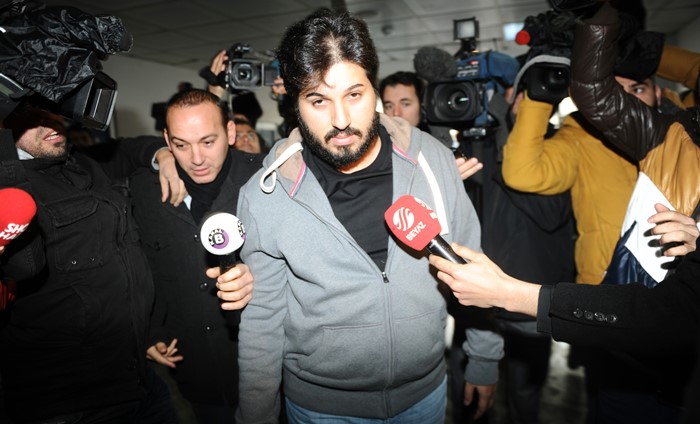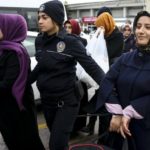On December 17, 2013 Turkey woke up to the news of police raids in İstanbul and the detention of the sons of three then-ministers from the ruling Justice and Development Party (AKP), Iranian-Turkish businessman Reza Zarrab, the director of a state-owned bank, a district mayor and many more.
The probe implicated, among others, the family members of four cabinet ministers as well as the children of then-prime minister and current President Recep Tayyip Erdoğan.
Despite the scandal resulting in the resignation of the four cabinet members, the investigation was dropped after prosecutors and police chiefs were removed from the case. Erdoğan, officials from the ruling AKP and the pro-government media described the investigation as an attempt to overthrow the government.
Dismissing the investigation as a conspiracy against his government by the Gülen movement, a group inspired by Muslim cleric Fethullah Gülen, Erdoğan designated the faith-based movement as a terrorist organization and began to target its members.
He locked up thousands, including many prosecutors, judges and police officers involved in the investigation.
Some of the claims that were part of the corruption investigation were later substantiated in New York federal court where Turkish banker Mehmet Hakan Atilla was sentenced to 32 months for conspiring to violate US sanctions on Iran and other offenses.
In August of this year Erdoğan Bayraktar, one of the ministers implicated in the probe, said the evidence against him included in the case file of the corruption investigation was genuine and not doctored as alleged by the ruling party.
According to critics, today, eight years later, Turks are experiencing the consequences of the graft probe being shut down.
Erdoğan cracked down on the police and the judiciary to survive the corruption allegations substantiated by seemingly insurmountable evidence, and his success in purging state institutions paralyzed once-effective checks and balances, turning the country into an “electoral autocracy” from the democracy it once was.
After 2013 Erdoğan and his AKP emerged victorious from four elections and a referendum. A coup attempt in 2016 added fuel to the fire, and Turkey’s strong man started to run roughshod over opponents as he cracked down on civil society this time as well as completely purging the state institutions.
Turkey’s steep decline into autocracy has had far-reaching consequences.
On the anniversary of the 2013 police raids, Turkey’s currency crisis accelerated as the lira plunged 8 percent.
Investors are gripped by fear of an inflationary spiral brought on by Erdoğan’s unorthodox plan to slash interest rates in the face of soaring prices.
It is called Erdoğan’s plan because he doesn’t try to hide the fact that he gives the orders to the country’s central bank to cut rates.
Erdoğan can intervene in how the central bank decides monetary policy because there is no one left to prevent him from doing so.
“Today is December 17. The impoverishment, the crisis, the depression, the collapse, the unraveling — all are the consequences of the downturn that started on December 17, 2013. The people of this country are paying the price of their state not being ruled by law, a price getting heavier by the day,” veteran journalist Mehmet Altan tweeted.
Eight years after the graft probe, Turkey’s monetary policy is firmly under Erdoğan’s control, and he is dragging the Turkish economy into a president-made crisis.
TM Editorial
Source: Turkish Minute



